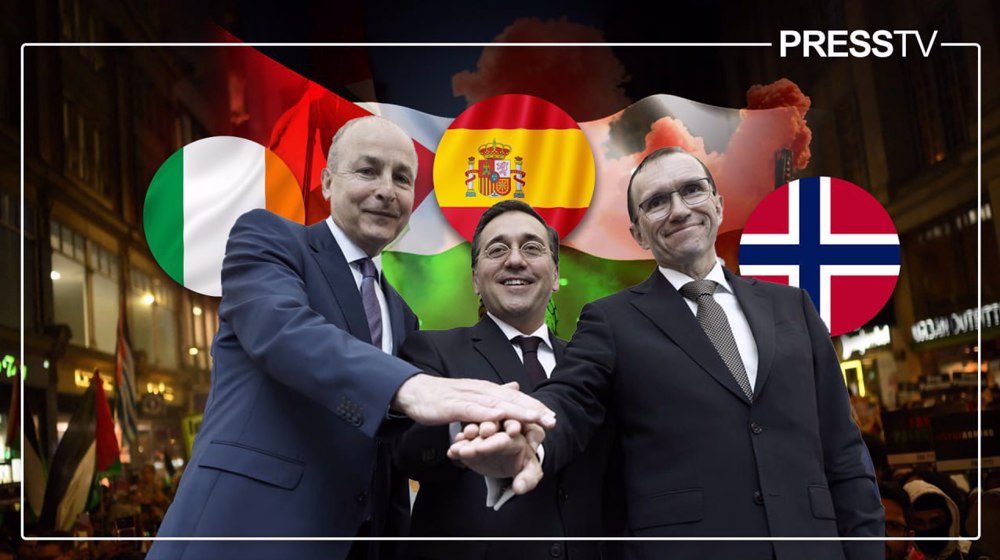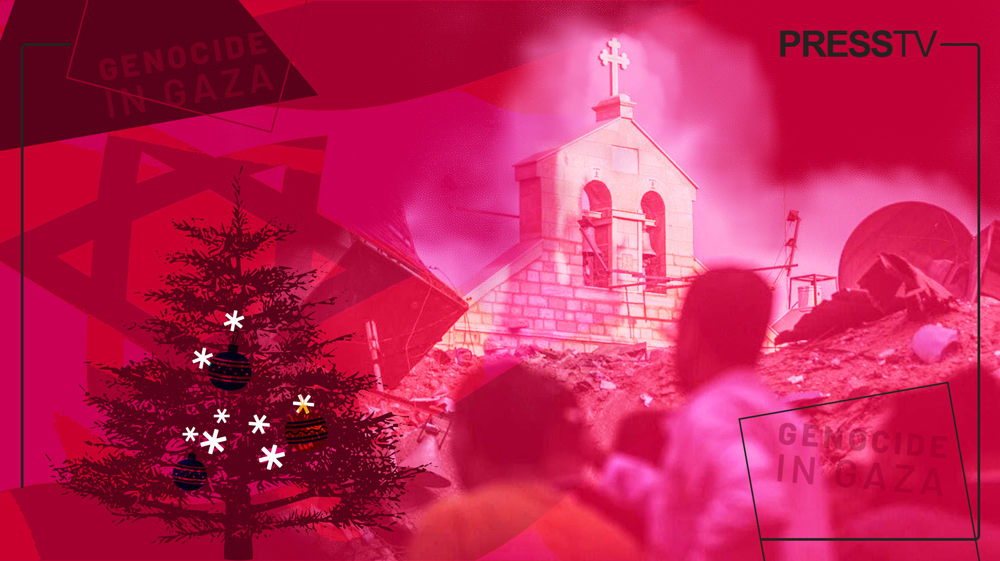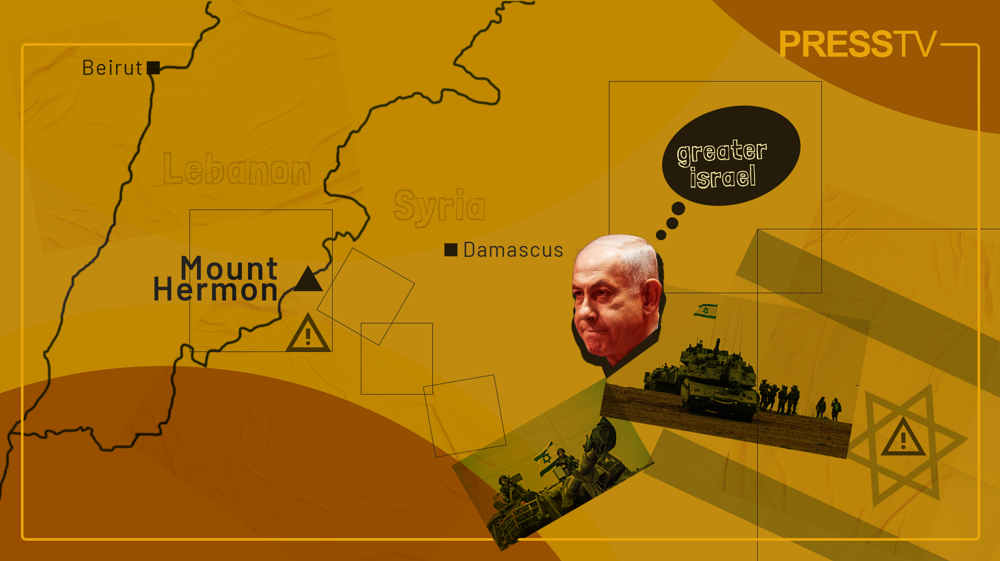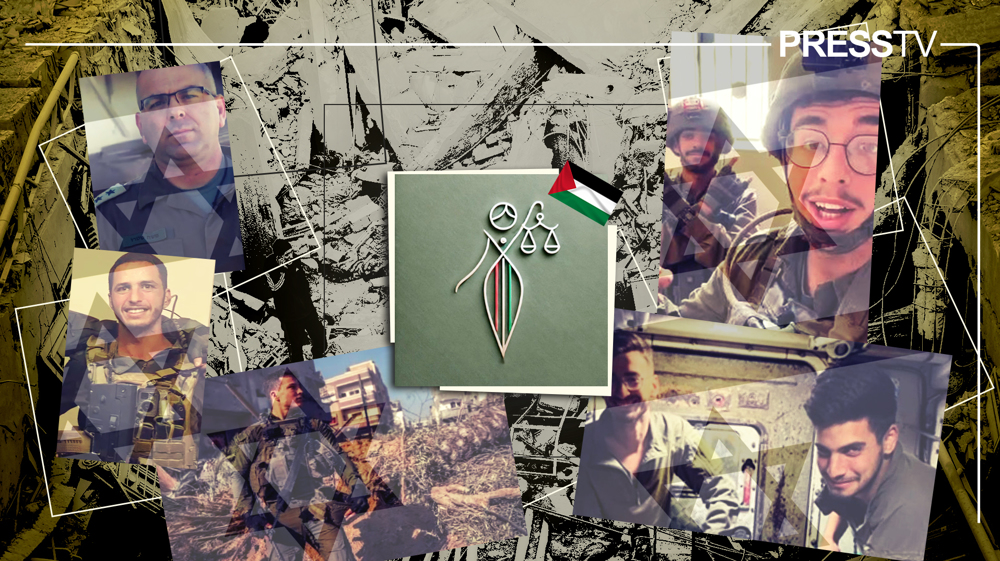Explainer: Why Ireland, Spain, Norway recognizing Palestinian statehood matters?
By Ivan Kesic
Three key players in Western Europe – Ireland, Norway and Spain – in a historic move this week announced that they formally recognize the State of Palestine, breaking the glass ceiling.
In a coordinated effort to exert pressure on the Israeli regime to stop its genocidal war on the besieged Gaza Strip, the three European nations on Tuesday joined most of the world's countries that have already recognized Palestine.
The joint declaration had already been announced the previous week, angering the Israeli regime that recalled its ambassadors from the three European states.
The move to formally recognize Palestine has a symbolic value, according to experts, as it signals further isolation of the apartheid regime internationally and growing recognition of Palestine and the Palestine cause after the events of October 7 last year.
What does recognition mean for the State of Palestine?
Ireland, Norway and Spain announced that they recognize a Palestinian state, according to the pre-1967 borders, with the occupied East Jerusalem as its capital.
The move will spur diplomatic relations between the three countries and Palestine, evident from Ireland's announcement that it will upgrade its representative office in the occupied West Bank to a full embassy, in open defiance of the occupying regime.
Ireland will also upgrade the Palestinian mission in Dublin to full embassy status, which was already done by Norway in 2010, as well as Spain the day after official recognition.
Although in practical terms, recognition does not mean much, it boosts Palestine's international standing and puts more pressure on the Israeli regime to end its eight-month genocidal war on Gaza, which has already killed more than 36,200 Palestinians, mostly children and women.
The timing of the recognition in the wake of Israel's expansion of its unchecked aggression to the city of Rafah in southern Gaza and the rulings of the International Court of Justice (ICJ) carries more weight since these are European countries that many in the West see as diplomatic role models.
Hence, the recognition brings optimism that some of the most politically and economically powerful Western countries, which today are among the rare exceptions in the world for not moving to recognize Palestine, will follow the same path in the near future.
The European troika's move also gives Palestinian diplomats more momentum in any negotiations or summits, allowing the State of Palestine to enter into bilateral agreements as an independent state.
What are the international dynamics of the recognition of Palestine?
Since 1988, when the Palestine Liberation Organization (PLO) declared the State of Palestine over internationally undisputed territories, recognition has been received by a total of 146 of the 193 countries of the world.
The PLO declared a state over the pre-1967 borders, specifically Gaza and the occupied West Bank with East Jerusalem, areas that the UN and the ICJ officially referred to as the Occupied Palestinian Territories.
These two separate areas were occupied by the Israeli regime in 1967 and represent only a quarter of the total territory of the original Palestine, before the Zionist aggression and occupation in 1948.
In the first few months after the official declaration, the State of Palestine was recognized by 90 countries, including the Islamic Republic of Iran, which is among the countries that recognize Palestine's full right to its original territory and call for the end to Israeli occupation and apartheid.
Some countries that have recognized Palestine also recognize the Zionist entity, favoring a two-state solution, in accordance with the failed bilateral negotiations at the end of the 20th century.
In the last century, Palestine was recognized by most Asian, African and Eastern European countries, and in this century most Latin American countries joined them.
Which countries have delayed Palestine’s recognition?
Rare exceptions that have not come forward so far are Japan, Myanmar, Singapore and South Korea in Asia, Cameroon and Eritrea in Africa, and Mexico and Panama in Latin America.
Nevertheless, almost all of these countries still maintain diplomatic relations with Palestine, refer to Palestine as a state and vote in favor of Palestine in the UN General Assembly.
The remaining countries that do not recognize Palestine, excluding a few small Oceanic states, are mainly Western countries: the United States, Canada, Australia and New Zealand, and 24 European countries, who share close ties with the Tel Aviv regime.
Most of these countries have aided and abetted the genocide against Palestinians since 1948, including the series of massacres in Gaza since October 7 last year.
Among Western European countries, the first ones to announce recognition of Palestine were NATO member Iceland in 2011 and EU member Sweden in 2014.
After the latest recognition of Ireland, Norway and Spain, new recognitions are expected in June from Slovenia, while disappointing news comes from Denmark, whose parliament voted against recognition on Tuesday.
On May 10, Denmark was among four Western European countries, along with Belgium, France and Greece, to vote in the UN General Assembly for a resolution calling for Palestinian membership in the UN.
Why is the Israeli regime furious with the decision?
Israel has reacted furiously to the decision by the three European countries, accusing them of "rewarding terrorism" and immediately withdrawing its envoys to Ireland, Norway and Spain.
The Zionist regime’s foreign minister also summoned the three countries’ ambassadors to a meeting, showing them propaganda footage about alleged crimes by the Hamas resistance movement.
The Troika's decision was difficult for the Israeli regime to swallow because it does not recognize Palestine and has a long-standing expansionist policy of grabbing all Palestinian territories in violation of UN resolutions and international law.
The announcement also shook the regime's belief that it could count on the endless and unconditional support of Western countries, regardless of its crimes against Palestinians.
In order to achieve its expansionist goals, it has used not only aggression, occupation and ethnic cleansing but also a quiet "slice by slice" policy, expanding illegal settlements and making additional territorial claims, along with diplomatic lobbying through influential Zionist lobby groups in the West.
Examples of such policies are the annexation of the occupied Syrian Golan, the construction of additional settlements in the occupied West Bank, the reduction of internationally recognized Palestinian land and sea, and the concept of the "undivided capital" Jerusalem.
Despite enormous lobbying efforts, only five countries agreed to move their embassies to the occupied Jerusalem al-Quds, and the campaign to normalize with Arab states also halted, which didn’t go down well with rulers in Tel Aviv.
The decisions of Ireland, Norway and Spain to recognize Palestine, with its 1967 borders and the occupied Jerusalem as its capital, represent a major blow to these Israeli apartheid policies in the short term, believe experts.
In the long term, as the Islamic Republic of Iran has always asserted, the occupation must end, from the river to the sea, and Palestinians must get back everything that has been taken from them.
Lavrov warns West against challenging Russia's resolve to defend interests
VIDEO | Press TV's news headlines
Yemen parl. condemns ‘shameful’ silence of Arab states on Israeli crimes in Gaza, Syria
VIDEO | Iran’s Christians mark Christmas with hopes for Gaza resolution
VIDEO | Syrians take to streets nationwide against shrine desecration; HTS militants fire on protesters
IRGC: Yemeni attacks change Israel’s calculations amid regime’s joy over Syria
Hamas calls for action against Israeli settler incursions into al-Aqsa Mosque
'Hell of the hell': UNRWA blasts Israel’s months-long deadly siege on northern Gaza










 This makes it easy to access the Press TV website
This makes it easy to access the Press TV website